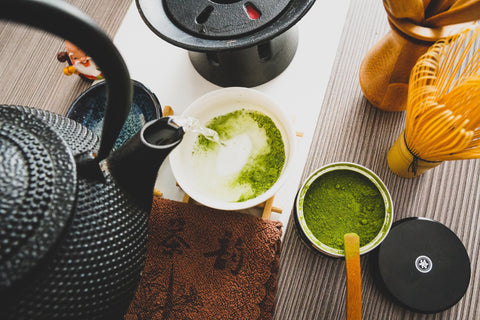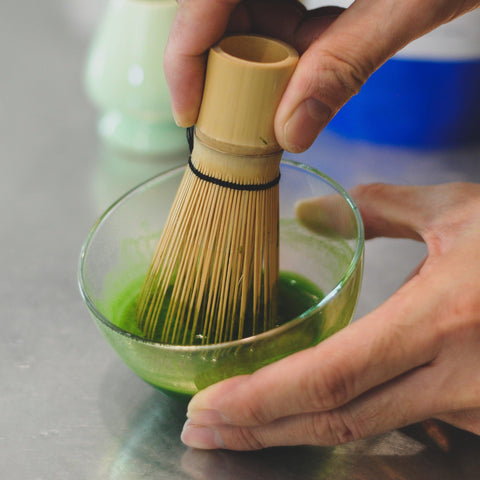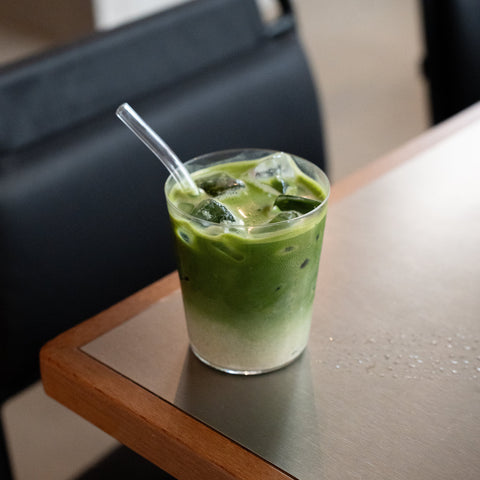
Beyond health, matcha has always been social. From ancient tea ceremonies in Japan to modern café culture in Malaysia, matcha connects people.
Matcha in Japanese Tradition

In Japan, matcha was central to the chanoyu (tea ceremony), symbolizing harmony, respect, purity, and tranquillity. Sharing tea created social bonds and spiritual connection (Sen, 1998).
Modern Social Spaces

Today, matcha is thriving in cafés worldwide. In Malaysia, iced matcha lattes and creative matcha drinks have become café staples, especially for younger generations seeking Instagram-worthy and health-conscious beverages (Statista, 2022).
Ritual and Community
The act of making and sharing matcha fosters community. Whether at a ceremony, café, or home, it creates a moment of pause and connection — aligning with modern desires for slower, more intentional social interactions.
Matcha and Cultural Fusion

In Southeast Asia, matcha is being fused with local flavors — pandan, gula melaka, tropical fruits — making it a bridge between cultures and generations (Euromonitor, 2022).
Matcha is more than just a drink — it’s a social ritual that has traveled from Zen temples in Japan to bustling Malaysian cafés. It represents connection, mindfulness, and cultural fusion.
Forest Cloud celebrates this spirit by making authentic matcha part of modern social life in Malaysia.
References
-
Euromonitor International. (2022). Tea in Asia-Pacific Market Report.
-
Sen, S. (1998). The Japanese Way of Tea: From Its Origins in China to Sen Rikyu. University of Hawaii Press.
-
Statista. (2022). Café Market in Southeast Asia Report.





